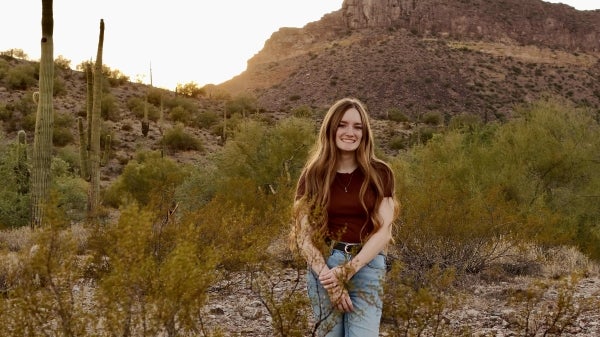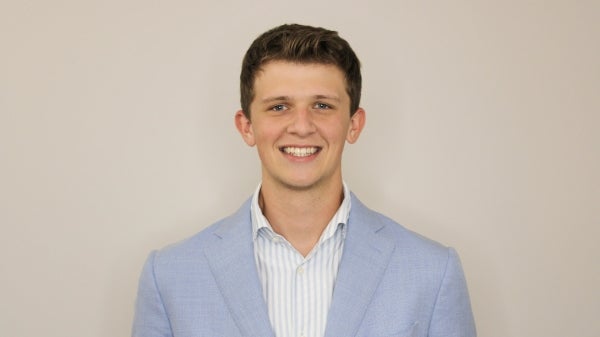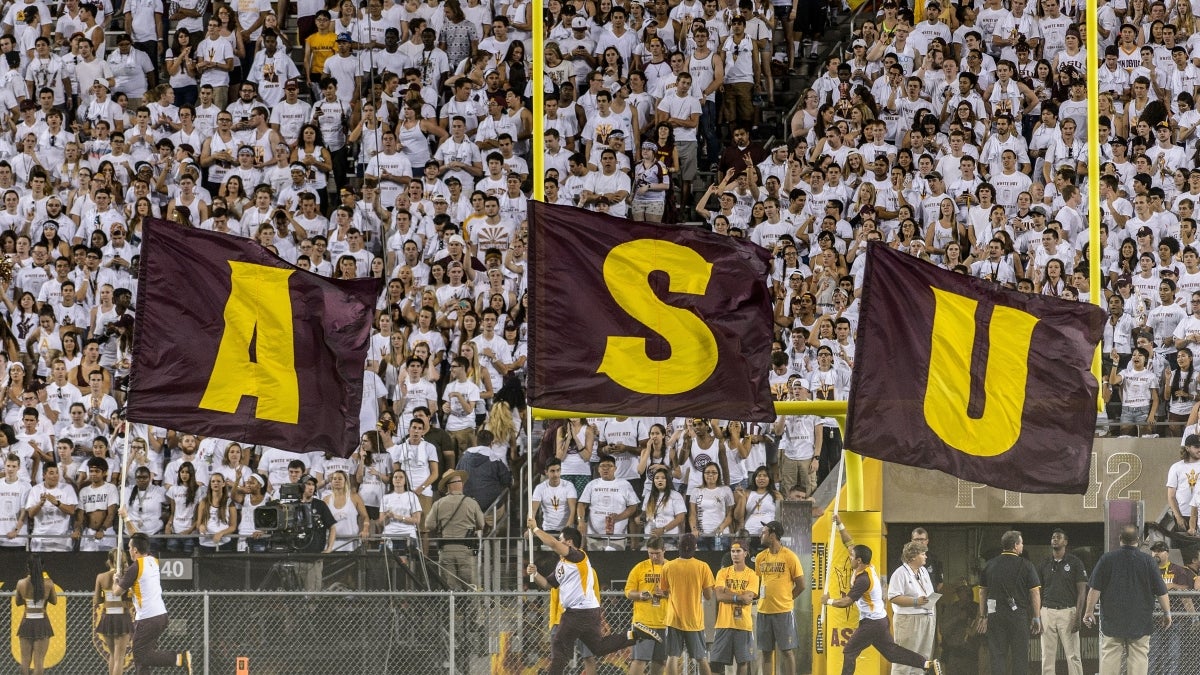You can’t turn around at Arizona State University without finding a building, school or professorship named for a generous donor who’s invested millions into the mission.
But some of the most vital work done at ASU is sustained by tiny donations that, added up, transform the lives of students, faculty and community members. Small sums of money can keep students who face hardship from dropping out, advance ground-breaking research and pay for programs that send students and faculty into the community to help people who need it most.
The theme of many individuals joining forces to help ASU is especially relevant for the fifth annual Sun Devil Giving Day on Friday because the university is in the midst of Campaign ASU 2020, an effort to raise $1.5 billion with the motto, “Together, Our Potential is Limitless.”
“The day is about continuing that tradition of generosity by asking alumni, family, friends, students and faculty to get involved in giving back to ASU,” according to Tiffany Khan, director of Sun Devil Giving, a division of the ASU Foundation for a New American University.
Rather than setting an amount goal, the university is hoping to increase the number of donors — no matter how much they give, Khan said. Last year, 2,548 donors raised $4,038,081.
“Last year, we wanted 2,000 pledges and we crossed that 2,500 line, so this year we’re hoping to pass 3,000 donors,” she said.
Donors can choose to donate to any part of ASU, such as college units, research centers, scholarships or athletics. Gifts can be designated to an area most in need or to a specific area, such as the Center for Meteorite Studies.
Private donations have a wide impact:
• Andrea Valentin-Hickey, a speech and hearing sciences student, doesn’t have a car but was able to work on her thesis for Barrett, The Honors College, thanks to the Jose Franco & Francisca Ocampo Quesada Research Award. The gift pays cab fare for Valentin-Hickey to travel to different schools for her research project on a reading program for English language learners.
• Three students in the Sandra Day O’Connor College of Law were named Sun Devil Giving Scholars — receiving scholarships made up entirely of donations of less than $100. One of the students, Cara James, is a first-generation college student who hopes to represent poor people in the area of family and housing law.
• Elizabeth Garbee, a doctoral student in the School for the Future of Innovation in Society, received a $2,200 Advancement Award to fund part of her dissertation, which is exploring the value of doctorate degrees in science, technology, engineering and math. This is the first time the award was given, and she said it’ll be a “huge jump-start” on her project. The grant will pay for a student to help her gather a survey sample of thousands of undergraduate and graduate students.
“What we’re finding now is that students who are earning STEM PhDs are struggling to find careers in their fields, or even adjacent fields,” she said. “I’m trying to identify those areas of value disconnect that are preventing these students with these high-value degrees from getting jobs.”
Garbee said that besides the actual dollar amount, the Advancement Award is important because it represents recognition.
“It’s really important to tangibly demonstrate to students that we matter,” she said.
Sun Devil Giving Day runs from midnight to 11:59 p.m. and donations are made on the website. Last year, the site ran a real-time dashboard displaying which units were collecting the most money.
“This year, because of ‘Together, Our Potential is Limitless,’ we wanted to focus less on competition and focus more on what happens when we all come together,” Kahn said.
So the site will have interactive tiles that show the number of donations to some of the units, a real-time map of where people are donating from across the nation and the total amount donated.
One part of Sun Devil Giving Day will be “Student Select.” Tables will be set up at the Tempe and Downtown Phoenix campuses, and students will be asked, “If you had $500 to give to one cause, what would it be?” They’ll write their answers on index cards, and 10 will be chosen randomly to be funded, thanks to corporate support, Khan said.
“We have student donors and we’re grateful to them but we know that not all students can donate while they’re in school,” she said. But by asking them to write down their ideas, “We want them to think about what giving will really look like when they graduate.”
Khan said that donors will have a huge choice of initiatives.
“If you care about cancer research, we’re doing it. If you care about first-generation students, we have one of the largest populations in the nation.
“The beauty of this is that no matter what you’re passionate about, ASU is doing it.”
For information or to donate, click here.
More Sun Devil community

Crime shows led December graduate to a degree in forensics
A fascination with science, the details behind solving cases and crime-focused television shows guided Gracie Thompson to pursue forensic science studies at Arizona State University.“I grew up…

There's no stopping this global health undergraduate
If the end depends on the beginning, Esha Kubavat has set herself up for success. The Naperville, Illinois-born and Anthem, Arizona-raised undergraduate is graduating in December with a bachelor’s…

Student leader shares journey in finance and campus community
Chase Mathias first realized that the medical field might not be for him during a high school biology class when he passed out while dissecting a pig. Though he dreamed of becoming an…
